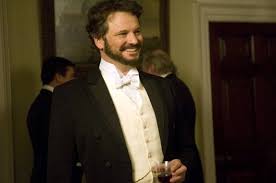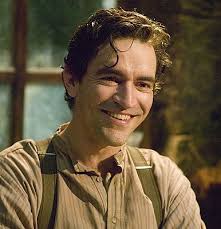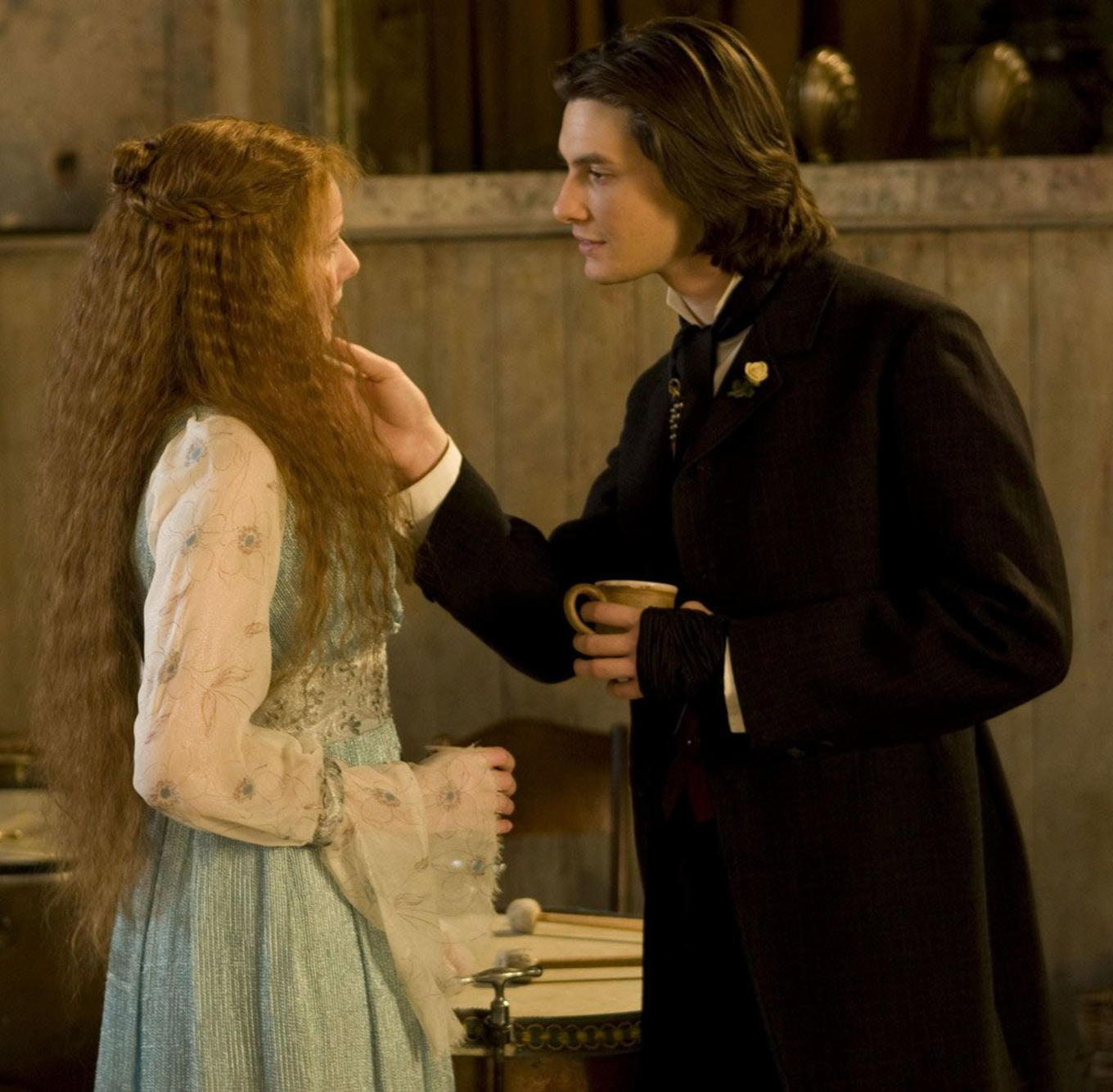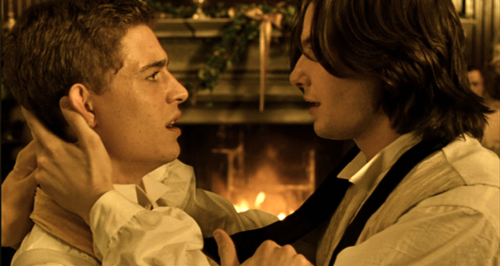Photo AI
Last Updated Sep 26, 2025
The Picture of Dorian Gray: Character Analysis Simplified Revision Notes for A-Level Edexcel English Literature
Revision notes with simplified explanations to understand The Picture of Dorian Gray: Character Analysis quickly and effectively.
314+ students studying
The Picture of Dorian Gray: Character Analysis
Dorian Gray
Overview
Dorian Gray is the protagonist of Oscar Wilde's novel "The Picture of Dorian Gray." He begins as a young, innocent, and exceptionally handsome man, whose portrait is painted by Basil Hallward. Influenced by Lord Henry Wotton, Dorian adopts a hedonistic lifestyle, seeking pleasure without regard for morality or the consequences of his actions. As he indulges in a life of excess and sin, the portrait ages and bears the marks of his corruption, while Dorian himself remains outwardly youthful and unmarked. His descent into moral decay ultimately leads to his destruction, revealing the novel's themes of vanity, influence, and the duality of human nature.

Key Plot Moments
- Dorian's Wish
- Upon seeing his finished portrait, Dorian wishes that he could remain young and beautiful forever while the portrait ages instead. This wish sets the stage for his eventual moral decline.
- The wish reflects his fear of losing his beauty and foreshadows the supernatural element of the portrait absorbing his sins.
- Influence of Lord Henry
- Lord Henry introduces Dorian to a hedonistic worldview, encouraging him to pursue a life of pleasure and self-indulgence.
- This moment signifies the beginning of Dorian's transformation and moral corruption.
- Sibyl Vane's Tragedy
- Dorian falls in love with Sibyl Vane, a talented actress, but cruelly rejects her when she performs poorly, leading to her suicide.
- This event marks the first significant moral transgression Dorian commits, causing a change in the portrait.
- Murder of Basil Hallward
- When Basil confronts Dorian about his increasingly depraved lifestyle, Dorian murders him in a fit of rage.
- This act of violence demonstrates the extent of Dorian's moral decay and the irreversible damage to his soul.
- Destruction of the Portrait
- In a final act of desperation, Dorian attempts to destroy the portrait, hoping to free himself from its curse.
- This climactic moment results in his death, with the portrait reverting to its original form and Dorian's body becoming a withered, aged reflection of his sins.
Key Themes
- The Corruption of Innocence: Dorian's transformation from an innocent young man to a figure of moral depravity highlights the corrupting influence of unchecked hedonism and vanity.
- Duality of Human Nature: The portrait serves as a symbol of the duality within Dorian, reflecting his outer beauty and inner corruption, exploring the conflict between appearance and reality.
- Influence and Manipulation: Lord Henry's role in shaping Dorian's worldview underscores the theme of influence and the susceptibility of individuals to manipulation.
Key Quotes
"The only way to get rid of a temptation is to yield to it. Resist it, and your soul grows sick with longing for the things it has forbidden to itself."
- This quote encapsulates Lord Henry's hedonistic philosophy and foreshadows the moral decline that Dorian experiences as he embraces this mindset.
- It highlights the dangerous allure of indulgence and the consequences of abandoning moral restraint.
"The portrait will be to him the most magical of mirrors. As it had revealed to him his own body, so it would reveal to him his own soul."
- The portrait as a "magical mirror" symbolizes the externalization of Dorian's inner corruption, reflecting the changes in his soul while his physical appearance remains untainted.
- This quote underscores the novel's exploration of the relationship between appearance and inner reality.
"Each of us has Heaven and Hell in him, Basil," cried Dorian with a wild gesture of despair.
- Dorian's recognition of the duality within himself – the capacity for both good and evil – highlights the internal conflict that drives his character.
- This moment of despair reflects his awareness of the moral consequences of his actions.
"I have grown to love secrecy. It seems to be the one thing that can make modern life mysterious or marvelous to us. The commonest thing is delightful if one only hides it."
- Dorian's love for secrecy and concealment emphasizes his detachment from societal norms and the thrill he finds in leading a double life.
- This quote illustrates the theme of deception and the allure of living a hidden, unrestrained existence.
"He looked around and saw the knife that had stabbed Basil Hallward. He had cleaned it many times, till there was no stain left upon it. It was bright, and glistened."
- The knife, a symbol of Dorian's violent act and attempt to erase his guilt reflects his ongoing struggle to reconcile his actions with his conscience.
- This quote highlights the futility of trying to cleanse oneself of moral transgressions through superficial means.
Lord Henry Wotton
Overview
Lord Henry Wotton is a charismatic and influential character in "The Picture of Dorian Gray." He catalyzes Dorian Gray's transformation, introducing him to a hedonistic and self-indulgent philosophy. Lord Henry is a master of witty and provocative conversation, often challenging societal norms and moral values. His worldview, which prioritizes pleasure and beauty above all else, profoundly impacts Dorian, leading to his eventual downfall. While Lord Henry remains relatively unscathed by the consequences of his ideas, his influence on Dorian highlights the novel's exploration of manipulation, morality, and the power of influence.

Key Plot Moments
- Introduction to Dorian
- Lord Henry meets Dorian at Basil Hallward's studio and immediately begins to influence him with his hedonistic philosophy.
- This moment marks the beginning of Dorian's transformation and sets the stage for the novel's central conflict.
- Philosophical Conversations
- Lord Henry engages Dorian in numerous discussions about pleasure, beauty, and the rejection of conventional morality.
- These conversations serve to further entrench Dorian in a hedonistic lifestyle, showcasing Lord Henry's persuasive power.
- Reaction to Sibyl Vane's Death
- When Dorian informs Lord Henry of Sibyl Vane's suicide, Lord Henry downplays the tragedy and encourages Dorian to view it as a dramatic and beautiful end.
- This reaction illustrates Lord Henry's detachment from moral consequences and his influence on Dorian's desensitization to suffering.
- Discovery of Dorian's Secret
- Although Lord Henry never fully comprehends the supernatural nature of Dorian's portrait, he remains fascinated by the changes in Dorian over the years.
- His curiosity and lack of moral judgment highlight his role as an enabler of Dorian's excesses.
- Final Conversation
- In their final interaction, Lord Henry reflects on the impact of his influence on Dorian, acknowledging the transformation he has undergone.
- This moment underscores the lasting effects of Lord Henry's philosophy and his indirect responsibility for Dorian's downfall.
Key Themes
- Influence and Manipulation: Lord Henry's role in shaping Dorian's worldview emphasizes the theme of influence and the susceptibility of individuals to charismatic figures.
- Moral Ambiguity: Lord Henry's detachment from the moral implications of his ideas highlights the theme of moral ambiguity and the dangers of prioritizing intellectual pursuits over ethical considerations.
- Hedonism and Aestheticism: His philosophy of pursuing pleasure and beauty above all else reflects the novel's exploration of hedonism and the consequences of living an aesthetic life.
Key Quotes
"The only way to get rid of a temptation is to yield to it. Resist it, and your soul grows sick with longing for the things it has forbidden to itself."
- This quote encapsulates Lord Henry's hedonistic philosophy and his belief in the futility of resisting temptation.
- It serves as the foundation for Dorian's subsequent moral decline and the novel's exploration of indulgence and consequence.
"To be good is to be in harmony with one's self. Discord is to be forced to be in harmony with others."
- Lord Henry's assertion that true goodness comes from self-harmony rather than societal conformity reflects his individualistic and self-centred worldview.
- This quote challenges conventional morality and emphasizes the novel's theme of personal freedom versus social obligation.
"There is only one thing in the world worse than being talked about, and that is not being talked about."
- Lord Henry's statement highlights his belief in the importance of social reputation and public perception.
- It underscores his superficial values and the emphasis he places on appearances over substance.
"I can sympathize with everything except suffering."
- This quote reveals Lord Henry's detachment from genuine human emotion and his inability to empathize with others' pain.
- It illustrates his moral ambiguity and the callousness that influences Dorian's desensitization to suffering.
"Youth is the only thing worth having. When I find that I am growing old, I shall kill myself."
- Lord Henry's obsession with youth and beauty encapsulates the novel's exploration of vanity and the fear of ageing.
- This quote foreshadows the destructive consequences of Dorian's pursuit of eternal youth and the superficial values that drive his actions.
Basil Hallward
Overview
Basil Hallward is a talented artist and a central character in "The Picture of Dorian Gray." He is the painter of Dorian Gray's portrait and represents the voice of conscience and moral integrity in the novel. Basil is deeply infatuated with Dorian's beauty, which inspires his greatest work. Unlike Lord Henry, Basil values inner beauty and the goodness of the soul. He becomes increasingly concerned about the changes in Dorian's character and the dark influence of Lord Henry. Basil's tragic fate at the hands of Dorian underscores the novel's themes of corruption, the consequences of influence, and the clash between aestheticism and morality.

Key Plot Moments
- Painting Dorian's Portrait
- Basil's creation of the portrait captures Dorian's initial innocence and beauty, symbolizing the purity of his soul.
- This moment sets the stage for the supernatural element of the portrait absorbing Dorian's sins.
- Introduction to Lord Henry
- Basil reluctantly introduces Dorian to Lord Henry, fearing the negative influence he might have on the young man.
- This moment foreshadows the conflict between Basil's moral values and Lord Henry's hedonistic philosophy.
- Confrontation with Dorian
- Concerned about Dorian's increasingly corrupt behaviour, Basil confronts him and urges him to reform.
- This moment highlights Basil's role as Dorian's conscience and his deep care for Dorian's well-being.
- Viewing the Portrait
- Basil insists on seeing the portrait after years of noticing Dorian's unchanging appearance, leading to his shock at the corrupted image.
- This revelation confirms Basil's worst fears about Dorian's moral decline and the supernatural nature of the portrait.
- Murder by Dorian
- In a fit of rage and desperation to keep his secret, Dorian murders Basil, symbolizing the destruction of his moral compass.
- This act marks the ultimate consequence of Dorian's corruption and the loss of his last connection to his former innocence.
Key Themes
- The Consequences of Influence: Basil's fate underscores the theme of influence, particularly how Lord Henry's philosophy corrupts Dorian and ultimately leads to Basil's demise.
- The Corruption of Innocence: Basil's concern for Dorian's soul and his tragic end illustrate the destructive power of corruption and the loss of innocence.
- Aestheticism vs. Morality: Basil represents the clash between the pursuit of beauty and the importance of moral integrity, highlighting the novel's exploration of these conflicting values.
Key Themes
- The Consequences of Influence: Basil's fate underscores the theme of influence, particularly how Lord Henry's philosophy corrupts Dorian and ultimately leads to Basil's demise.
- The Corruption of Innocence: Basil's concern for Dorian's soul and his tragic end illustrate the destructive power of corruption and the loss of innocence.
- Aestheticism vs. Morality: Basil represents the clash between the pursuit of beauty and the importance of moral integrity, highlighting the novel's exploration of these conflicting values.
Key Quotes
"Every portrait that is painted with feeling is a portrait of the artist, not of the sitter."
- This quote reflects Basil's belief in the deep connection between the artist and their work, emphasizing the personal and emotional investment in his art.
- It underscores the novel's exploration of art as a reflection of the creator's soul and values.
"I have put too much of myself into it."
- Basil's admission reveals his deep attachment to Dorian and the extent to which he has invested his own emotions and ideals into the portrait.
- This quote foreshadows the impact of Dorian's corruption on Basil and the portrait's transformation.
"Sin is a thing that writes itself across a man's face. It cannot be concealed."
- Basil's statement highlights his belief in the visibility of moral corruption and the impossibility of hiding one's true nature.
- This quote contrasts with the supernatural concealment of Dorian's sins by the portrait, emphasizing the novel's exploration of appearance versus reality.
"You were to me such an ideal as I shall never meet again. This is the face of a satyr."
- Basil's lament upon seeing the corrupted portrait reflects his disillusionment with Dorian and the loss of his idealized vision of him.
- This quote underscores the theme of shattered ideals and the impact of moral decay on personal relationships.
"As a rule, I think that it is better to be beautiful than to be good. But when it is one or the other, I prefer good people to ugly ones."
- Basil's preference for goodness over beauty reflects his moral values and contrasts with Lord Henry's hedonistic philosophy.
- This quote highlights the novel's exploration of the tension between aestheticism and morality.
Sybil Vane
Overview
Sybil Vane is a young actress from a poor family who performs Shakespeare's heroines at a low-class theatre. She embodies the artistic ideal and is initially adored by Dorian Gray for her enchanting performances. However, her love for Dorian leads to a deterioration in her acting, which causes him to lose interest in her. Heartbroken, Sybil commits suicide, symbolising the tragic consequences of conflating art with reality.

Key Plot Moments
- Dorian's Initial Infatuation
- Dorian falls in love with Sybil's performances, seeing her as a divine figure who transcends her vulgar surroundings.
- Her portrayal of Shakespearean heroines captivates Dorian, who is entranced by her beauty and talent.
- Sybil's Poor Performance
- After becoming engaged to Dorian, Sybil's acting deteriorates as she finds true love more fulfilling than art.
- Dorian is disappointed by her poor performance and rejects her, which shatters her emotionally.
- Sybil's Suicide
- Sybil, devastated by Dorian's rejection, takes her own life, reflecting her role as a Juliet-like martyr for love.
- Her death marks a pivotal moment in the novel, prompting Dorian to further embrace his hedonistic lifestyle.
Key Themes
- Art vs. Reality: Sybil's love for Dorian causes her to lose her artistic talent, highlighting the tension between art and reality.
- The Consequences of Influence: Sybil's tragic end underscores the destructive impact of Dorian's and Lord Henry's philosophies on those around them.
- Innocence and Sacrifice: Sybil represents innocence and purity, sacrificing her life due to her idealistic love for Dorian.
Key Quotes
"I have seen her in every age and every costume. Ordinary women never appeal to one's imagination. They are limited to their century."
- Dorian's fascination with Sybil stems from her ability to transcend time through her acting.
- This quote highlights Dorian's obsession with art and beauty over real human connections.
"The painted scenes were my world. I knew nothing but shadows and thought them real."
- Sybil reveals her disillusionment with acting, seeing her past performances as mere illusions compared to her love for Dorian.
- This quote illustrates the theme of art vs. reality and Sybil's awakening to true emotions.
"So I have murdered Sybil Vane," said Dorian Gray, half to himself, "murdered her as surely as if I had cut her little throat with a knife. Yet the roses are not less lovely for that."
- Dorian acknowledges his role in Sybil's death, showing his recognition of the consequences of his actions.
- The juxtaposition of Sybil's death with the beauty of roses underscores the novel's exploration of aestheticism and moral decay.
James 'Jim' Vane
Overview
James 'Jim' Vane is the protective, burly sailor brother of Sybil Vane. Unlike his sister, Jim is rough and experienced, deeply committed to safeguarding her from harm. After Sybil's tragic death, Jim becomes obsessed with avenging her, representing the moral consequences of Dorian Gray's actions.

Key Plot Moments
- Protective Brother
- Jim is introduced as a devoted brother who promises to protect Sybil from any harm.
- He is suspicious of Sybil's suitor and fears for her well-being.
- Leaving for Australia
- Before leaving for Australia, Jim extracts a promise from his mother to look after Sybil.
- His departure sets the stage for his eventual return and quest for vengeance.
- Encounter with Dorian
- Jim recognizes Dorian as the man who wronged Sybil and begins to haunt him.
- His appearance becomes a symbol of Dorian's guilt and impending doom.
- Jim's Death
- Jim's pursuit of Dorian ends tragically when he is accidentally killed during a hunting trip.
- His death ensures that Dorian's crimes remain undiscovered, heightening the novel's sense of irony and moral complexity.
Key Themes
- Revenge and Justice: Jim embodies the theme of revenge, seeking justice for his sister's death.
- Moral Retribution: Jim's relentless pursuit of Dorian represents the inevitable moral retribution that follows immoral actions.
- Family Loyalty: His commitment to protecting Sybil highlights the importance of familial bonds and loyalty.
Key Quotes
"She mentally elevated her son to the dignity of an audience. She felt sure that the tableau was interesting."
- This quote from Mrs. Vane reflects her theatrical nature and the performative aspect of their family life.
- It underscores the theme of appearances and the superficiality of social interactions.
"His face becomes a symbol of the goodness that Dorian has destroyed."
- Jim's face haunting Dorian symbolizes the moral consequences of Dorian's hedonistic actions.
- This quote highlights the novel's exploration of guilt and retribution.
Alan Campbell
Overview
Alan Campbell is a scientist and former close friend of Dorian Gray. Once an intimate companion, Alan grows to despise Dorian due to his corrupting influence. He is blackmailed by Dorian into disposing of Basil Hallward's body, a task that leads to his eventual suicide, highlighting the destructive impact of Dorian's actions on those around him.

Key Plot Moments
- Reunion with Dorian
- Dorian summons Alan to help dispose of Basil's body, claiming it was a suicide.
- Alan's initial refusal and horror at the request demonstrate his moral integrity.
- Blackmail and Coercion
- Dorian blackmails Alan, forcing him to comply with his demands.
- Alan's reluctant cooperation reveals the depths of Dorian's manipulation and control.
- Disposal of Basil's Body
- Alan performs the gruesome task, reflecting the extent of his desperation and Dorian's influence.
- Alan's Suicide
- Unable to cope with the guilt and horror of his actions, Alan takes his own life.
- His death underscores the tragic consequences of Dorian's corrupting presence.
Key Themes
- Corruption and Influence**:** Alan's downfall illustrates the corrupting influence of Dorian's hedonism and moral decay.
- Guilt and Desperation: Alan's actions and subsequent suicide highlight the themes of guilt, desperation, and the inability to escape one's conscience.
- Power and Manipulation**:** Dorian's control over Alan exemplifies the power dynamics and manipulation present in the novel.
Key Quotes
"Dorian reminds Alan that he has used him badly in the past and now it is time for Dorian to be in control."
- This quote reveals Dorian's manipulation and exploitation of Alan's past vulnerabilities.
- It underscores the power imbalance between the characters and Dorian's ruthless nature.
"The lack of pity that Alan has for Dorian, and indeed the actual fear that Dorian's presence causes him, is evidence of Dorian's mysterious lost years."
- Alan's fear and lack of pity for Dorian highlight the latter's descent into decadence and sin.
- This quote emphasizes the novel's exploration of the consequences of a hedonistic lifestyle.
The Duchess of Monmouth
Overview
The Duchess of Monmouth is a clever and attractive member of Lord Henry's social circle. She stands out as one of the few women who can intellectually match Lord Henry and engage in equal banter with him. Her fascination with Dorian Gray underscores the novel's themes of appearance, infidelity, and the superficial nature of relationships in high society.
Key Plot Moments
- Intellectual Equal to Lord Henry
- The Duchess engages in witty banter with Lord Henry, showcasing her intelligence and charm.
- Her ability to hold her own in conversation with Lord Henry sets her apart from other women in the novel.
- Flirting with Dorian
- The Duchess is intrigued by Dorian and flirts with him, adding to the tension in the novel.
- Her interactions with Dorian highlight the superficial and often duplicitous nature of romantic relationships in their social circle.
- Witnessing Dorian's Collapse
- The Duchess is present when Dorian collapses after seeing James Vane's face at the window.
- Her concern for Dorian adds a layer of complexity to her character, showing her as more than just a superficial socialite.
Key Themes
- Superficiality and Appearance: The Duchess's interactions with Dorian and Lord Henry underscore the novel's focus on the superficial nature of high society.
- Infidelity and Marriage: Her flirtation with Dorian reveals the fragile and often performative nature of marriages in their social circle.
- Intellectual Equality: The Duchess represents the rare instance of a woman who can intellectually match the male characters, challenging the novel's predominantly male-centric view of intellect and wit.
Key Quotes
"The Duchess makes the point that women love with their ears, while men love with their eyes, and accuses Dorian of never really loving."
- This quote highlights the Duchess's insight into gender differences in love and her perceptiveness about Dorian's character.
- It underscores the theme of superficiality in relationships and Dorian's inability to form genuine emotional connections.
"Dorian goes to fetch some orchids for the Duchess to take home. When he is gone, Henry inquires about the Duchess's flirting. She likes the challenge of Dorian."
- This quote illustrates the Duchess's playful and flirtatious nature, as well as her interest in Dorian.
- It reflects the novel's focus on the performative aspects of social interactions and relationships.
- The Duchess is never referred to by a name, only her title.
500K+ Students Use These Powerful Tools to Master The Picture of Dorian Gray: Character Analysis For their A-Level Exams.
Enhance your understanding with flashcards, quizzes, and exams—designed to help you grasp key concepts, reinforce learning, and master any topic with confidence!
90 flashcards
Flashcards on The Picture of Dorian Gray: Character Analysis
Revise key concepts with interactive flashcards.
Try English Literature Flashcards9 quizzes
Quizzes on The Picture of Dorian Gray: Character Analysis
Test your knowledge with fun and engaging quizzes.
Try English Literature Quizzes29 questions
Exam questions on The Picture of Dorian Gray: Character Analysis
Boost your confidence with real exam questions.
Try English Literature Questions27 exams created
Exam Builder on The Picture of Dorian Gray: Character Analysis
Create custom exams across topics for better practice!
Try English Literature exam builder21 papers
Past Papers on The Picture of Dorian Gray: Character Analysis
Practice past papers to reinforce exam experience.
Try English Literature Past PapersOther Revision Notes related to The Picture of Dorian Gray: Character Analysis you should explore
Discover More Revision Notes Related to The Picture of Dorian Gray: Character Analysis to Deepen Your Understanding and Improve Your Mastery
96%
114 rated
The Picture of Dorian Gray by Oscar Wilde & The Little Stranger by Sarah Waters
The Picture of Dorian Gray: Plot Summary
256+ studying
195KViews96%
114 rated
The Picture of Dorian Gray by Oscar Wilde & The Little Stranger by Sarah Waters
The Little Stranger: Plot Summary
210+ studying
192KViews96%
114 rated
The Picture of Dorian Gray by Oscar Wilde & The Little Stranger by Sarah Waters
The Picture of Dorian Gray: Context & Writers Techniques
285+ studying
185KViews96%
114 rated
The Picture of Dorian Gray by Oscar Wilde & The Little Stranger by Sarah Waters
The Little Stranger: Context & Writers Techniques
372+ studying
193KViews